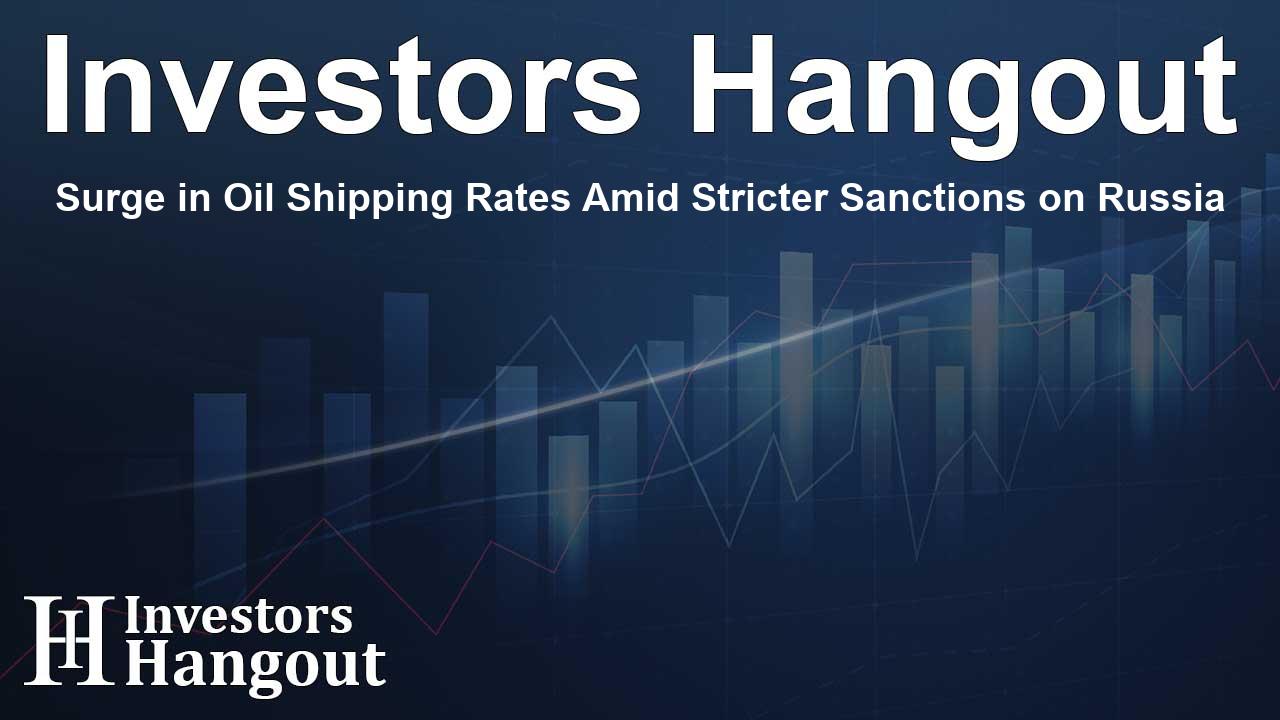Surge in Oil Shipping Rates Amid Stricter Sanctions on Russia

Understanding the Impact of Sanctions on Oil Shipping Rates
The oil shipping industry is witnessing a significant surge in freight rates. This sharp increase stems from the U.S. expanding sanctions on Russian oil trade. Traders are eager to secure vessels for transporting crude from alternative sources to major markets like China and India.
Tightening Supply of Oil from Alternative Sources
Chinese and Indian refineries are currently adapting to these new sanctions. The restrictions affect their usual operations, forcing them to seek alternative supplies. The situation has escalated as the world grapples with the ongoing repercussions from geopolitical tensions, making it essential for these refiners to find different fuel sources.
Shadow Fleet and Its Role in Global Oil Transport
A notable development in this scenario is the emergence of what is referred to as a 'shadow fleet.' Many of these vessels, previously designated for shipping Russian oil, are staying active by transporting crude oil to countries like India and China. This allows these nations to receive oil that is increasingly difficult to source due to restrictions imposed by the West.
Freight Rate Escalation: Analysis and Figures
Freight rates for Very Large Crude Carriers (VLCCs) have surged significantly. For instance, recent reports indicate that rates on the Middle East to China route have increased by an impressive 39%, reaching levels not seen since the previous year. This spike highlights the changing dynamics in freight logistics as the sanctions create a ripple effect in shipping costs.
Comparative Freight Rates and Their Significance
According to industry data, rates for Aframax-sized tankers have also more than doubled for shipments from Russia's Kozmino port. This reflects the growing anxiety among shipowners who now demand hefty premiums due to the limited availability of ships willing to take on such high-risk routes.
Challenges Facing Tankers in the Current Market
Adding to the existing challenges, several sanctioned vessels are currently stuck outside China’s Shandong province. This impasse arises from a prohibition imposed by local authorities, rendering some shipments unable to reach their intended destinations.
Future Trends in Oil Transportation
Market analysts predict that tanker availability may continue to tighten as traders scramble for unsanctioned vessels for transporting Russian and Iranian crude oil. A growing shadow fleet is expected to emerge as traders turn to newer ships entering this specific segment, further tightening the supply in the non-sanctioned freight market.
Conclusion: The Ongoing Repercussions of Sanctions
The evolving situation in the oil shipping industry underscores the intricate relationships between global politics and fuel transportation logistics. As sanctions reshape the market landscape, refiners and traders alike must navigate these turbulent waters carefully.
Frequently Asked Questions
What are the main reasons for the increase in oil shipping rates?
The increase is primarily driven by expanded US sanctions on Russian oil trade, leading traders to seek alternative supply routes.
How do sanctions affect oil imports to China and India?
Sanctions limit direct access to Russian oil, prompting Chinese and Indian refiners to find other sources to meet their fuel needs.
What is a 'shadow fleet' in the context of oil shipping?
The 'shadow fleet' refers to ships that are used to transport oil under sanctions, particularly from Russia and Iran to countries like China and India.
Why are shipping rates for Aframax-sized tankers so high?
Rates for Aframax tankers have risen due to a shortage of available vessels and heightened demand, resulting in significant premiums requested by shipowners.
What future trends can we expect in the oil shipping market?
Analysts expect tighter tanker availability and the emergence of new ships in the shadow fleet, further tightening supply in the international oil market.
About The Author
Contact Olivia Taylor privately here. Or send an email with ATTN: Olivia Taylor as the subject to contact@investorshangout.com.
About Investors Hangout
Investors Hangout is a leading online stock forum for financial discussion and learning, offering a wide range of free tools and resources. It draws in traders of all levels, who exchange market knowledge, investigate trading tactics, and keep an eye on industry developments in real time. Featuring financial articles, stock message boards, quotes, charts, company profiles, and live news updates. Through cooperative learning and a wealth of informational resources, it helps users from novices creating their first portfolios to experts honing their techniques. Join Investors Hangout today: https://investorshangout.com/
The content of this article is based on factual, publicly available information and does not represent legal, financial, or investment advice. Investors Hangout does not offer financial advice, and the author is not a licensed financial advisor. Consult a qualified advisor before making any financial or investment decisions based on this article. This article should not be considered advice to purchase, sell, or hold any securities or other investments. If any of the material provided here is inaccurate, please contact us for corrections.
